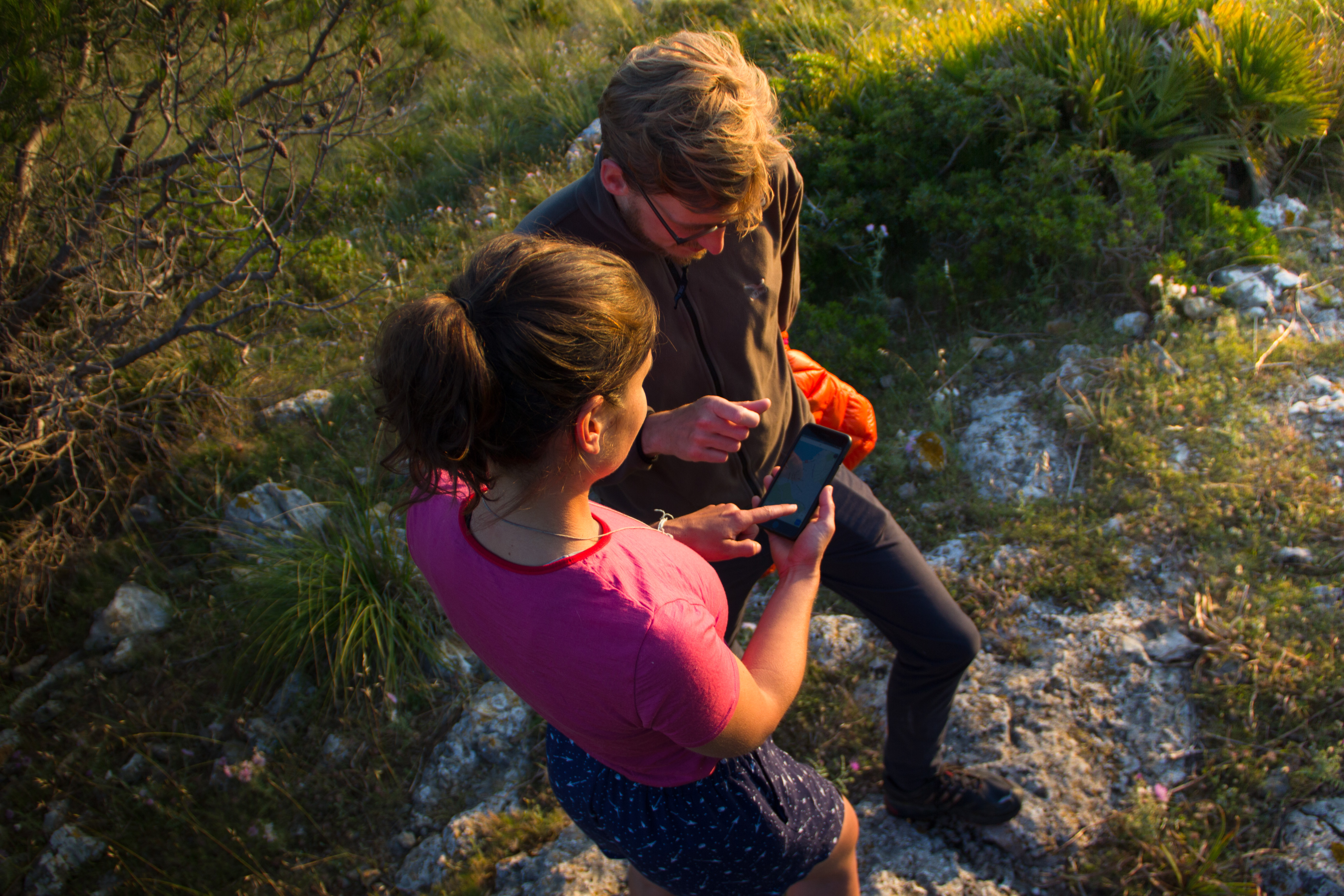Komoot App Aims to Make Planning and Sharing Routes Easy
With 8 million users, komoot is the leading outdoor app in Europe, surpassing Google Maps in popularity for cycling route-planning. Now it’s time for the U.S. to see what all the hype is about.
Enter your starting point. Enter your destination. But this isn’t just about finding the most direct route to your favorite coffee shop. Komoot wants to change the way you think about route-planning — by bike or on foot — for good.

What makes komoot’s platform unique is its ability to tailor the route to your preferred type of riding, be that road cycling, gravel or mountain biking, or something more leisurely. After setting your destination, you can ask komoot to include — or avoid — a particular surface, like dirt or singletrack.
And while we all appreciate the nostalgia of unfolding a ragged, well-loved paper map, today’s world is all about sharing everything you do with friends. And komoot’s extensive mapping features let riders research, plan, track, and share not just their perfect route, but the route “Highlights” for everyone else to benefit from too when planning.
Komoot’s Smart Route-Planning
Komoot uses finely tuned algorithms that automate a lot of the usual steps in the route-planning process. You can plan a route on the komoot iOS or Android app on your smartphone or komoot’s website on your computer.
Komoot gets to work assessing road surfaces to determine which trails, dirt, or gravel roads exist in the area and suggests a route for you. You can create a loop with one click. And if you aren’t entirely happy, you can adjust the route by adding and moving waypoints.
Riders can further dial in a route by entering their fitness level. This will let you know how long the ride should take based on your fitness. If it’s taking too long for your fancy, then perhaps it’s time to use the interactive elevation profile to cut out some of the elevation gain or avoid that nasty dirt climb and take the road alternative instead.
Still, komoot won’t remove the killer climb to an epic view of a mountain lake. But it can tell you the easiest way to get there and just how difficult it will be. And, more importantly, other komoot users can help tell you how rewarding that view will be by creating Highlights to prove it. Think of komoot as Trip Advisor for the outdoors.
Plus, you can download your route or the surrounding area for offline turn-by-turn navigation on your phone, and sync routes to most GPS devices. You can also upload new ride data to komoot, add photos or a description of your ride, and create Highlights.

According to komoot, Highlights are “not to to be missed” places or segments of routes. Mark these after a ride to let others know about a desirable feature — an amazing downhill, a techy singletrack climb, etc.
Not a Fitness App
But don’t expect to set a KOM or QOM. Komoot is not out to pit the Lycra-clad neighbor against the working parent with a three-speed. The brand wants to bring cyclists together to discover new routes in their hometowns and while traveling to new places.
Komoot relies on the quality of data in Open Street Maps (OSM) to provide you with the best routing experience. Do note that OSM routing data in the U.S. varies greatly from state to state. However, U.S. road routing data is 99 percent accurate, and most of the major trail networks in the country are already on OSM and therefore routable with komoot.
See something amiss? You can add and update information on OSM.
Download the app for Android and iOS, available now. Pricing ranges from $4 for a single region to $30 for lifetime access to world offline maps. Komoot includes the first region for free when you sign up.
This article is sponsored by komoot. Learn about what the app has to offer here.
The post Komoot App Aims to Make Planning and Sharing Routes Easy appeared first on GearJunkie.

